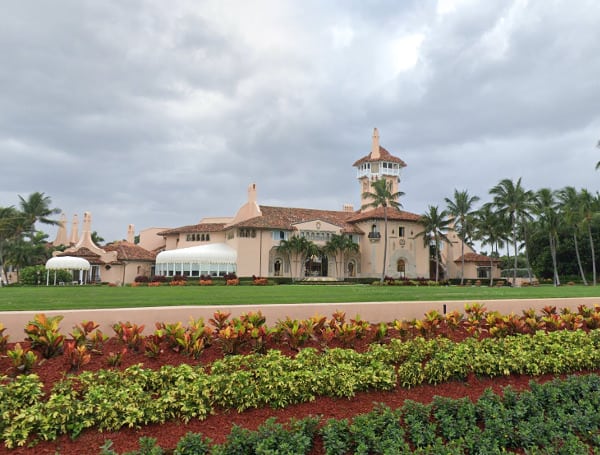Former President Donald Trump filed a motion Thursday night to dismiss his classified documents case in Florida.
The former president has been charged with 40 counts in the Southern District of Florida, alleging that he unlawfully retained national defense information and then attempted to obstruct the federal investigation into his handling of the material.
Special counsel Jack Smith, appointed by Attorney General Merrick Garland in 2022 to oversee two Trump-related investigations, accused Trump of knowingly transferring sensitive government records with classified markings from the White House to his Mar-a-Lago residence.
Read: Florida Gov. DeSantis Slams Biden’s VA For Prioritizing Gender Ideology Over Veteran Care
The special counsel also charged Trump and two co-defendants, aide Walt Nauta and resort employee Carlos de Oliveira, with crimes, including allegedly moving boxes of government records to avoid detection and unsuccessfully attempting to erase security camera footage.
Trump, Nauta, and de Oliveira have all pleaded not guilty, and in Thursday’s filings, the former president’s legal team criticized the investigation in much the same way that Trump did during the campaign.
Trump’s attorneys filed four motions to dismiss the indictment with Judge Aileen Cannon, citing issues with Jack Smith’s appointment as special counsel and claiming that various legal principles, including the Presidential Records Act and the theory of presidential immunity, protect the former president from criminal prosecution in the case.
The attorneys argued in one memo that the case should be dismissed because, as president, Trump had “unreviewable discretion” over classified records and, under the Presidential Records Act, could designate any official government document as a personal record.
Read: Florida Gov. DeSantis Rules Out Being Trump’s Number 2
“President Trump was still the President of the United States when, for example, many of the documents at issue were packed (presumably by the GSA), transported, and delivered to Mar-A-Lago,” the filing said.
Trump’s team also argued that the Presidential Records Act “precludes judicial review” of a president’s recordkeeping, claiming that the court lacks jurisdiction in the matter. They stated that in other cases involving “government officials whose last name is not Trump,” things were handled differently.
According to prosecutors’ 2022 court filings, federal investigators discovered more than 300 documents with classified markings at Trump’s Mar-a-Lago club after he left the White House. The documents were allegedly stored in several locations at Mar-a-Lago, including a ballroom, a bathroom, and a storage room with over 80 boxes stacked.
On Thursday, the former president’s legal team invoked presidential immunity, a theory they have previously failed to use in an attempt to dismiss the special counsel’s 2020 election-related case filed against him in Washington.
Trump’s lawyers contended that much of the conduct described in the indictment occurred while he was still president, and that they are official acts that cannot be criminally charged. Trump “made this decision while he was still in office,” they wrote of his move of documents to Mar-a-Lago. “The alleged decision was an official act, and as such is subject to presidential immunity.”
Read: Republican State AGs Rip FAA For Placing DEI Hiring Over Passenger Safety
Many of the legal arguments in the filing echo Trump’s claims in the D.C. case, including his assertion that the threat of future prosecution could affect how a sitting president operates because it would “hang like a millstone around every future President’s neck, distorting Presidential decision-making.”
The former president made similar claims to a federal judge and three appeals court judges in the nation’s capital. All rejected his claim of presential immunity, arguing that legal and historical precedents do not support the notion that a president can never be charged for conduct committed while in office. Trump has petitioned the Supreme Court to intervene and further delay his criminal trial in that case while he pursues other appeals. The justices have yet to decide on his request.
His legal team also criticized the special counsel himself, claiming Smith’s appointment and funding are “invalid.”
“Neither the Constitution nor Congress have created the office of the ‘Special Counsel,'” they wrote, arguing the attorney general did not have the proper authority to name Smith to the job. “The authority he attempts to employ as Special Counsel far exceeds the power exercisable by a non-superior officer, the authority that Congress has not cloaked him with.”
Help support the Tampa Free Press by making any small donation by clicking here.
Android Users, Click To Download The Tampa Free Press App And Never Miss A Story. Follow Us On Facebook and Twitter. Sign up for our free newsletter.

